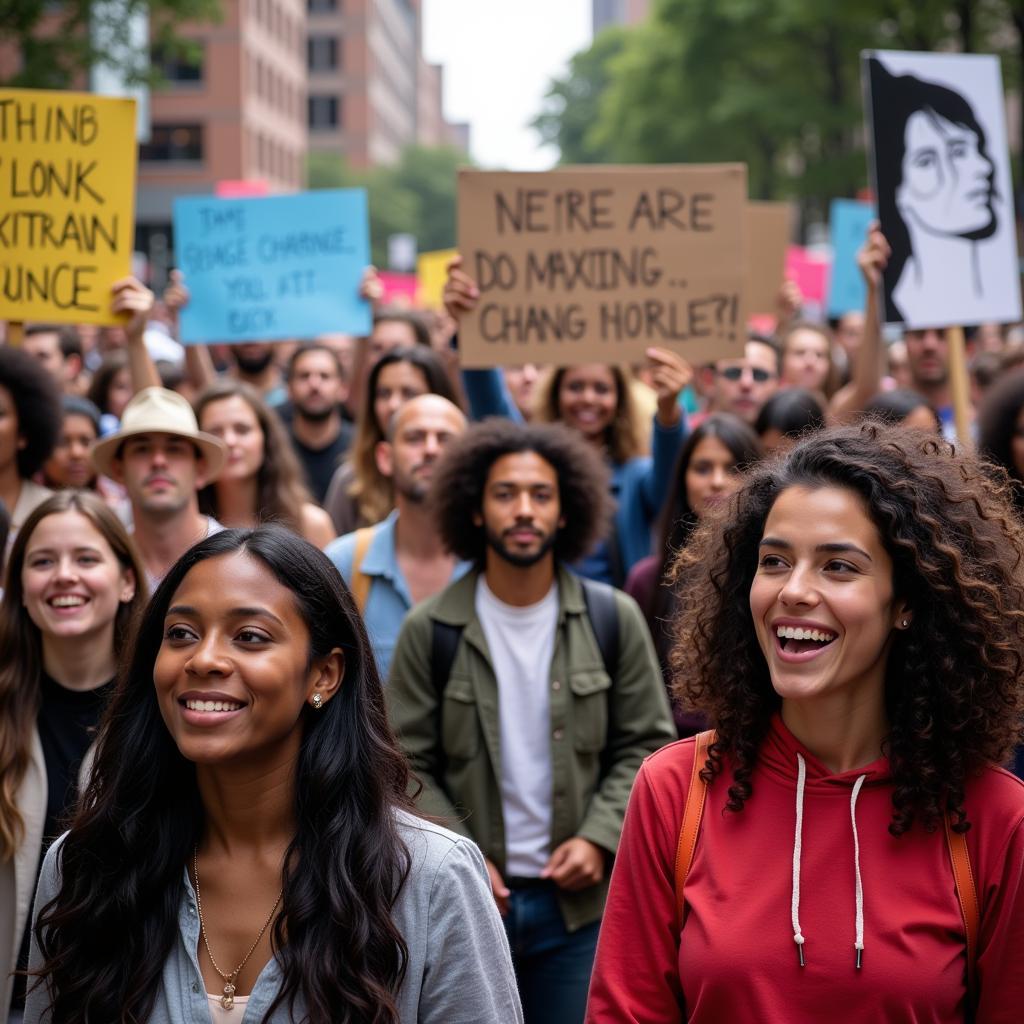From the dawn of civilization to our interconnected world today, human society has been in a constant state of flux. The ways we live, interact, and understand our place in the world have undergone dramatic transformations. These alterations in various aspects of society over time are driven by a complex interplay of factors, including technological advancements, cultural shifts, economic forces, and environmental pressures.
 People from diverse backgrounds connecting through technology
People from diverse backgrounds connecting through technology
The Unstoppable March of Technology
Technological progress has been a key catalyst for societal change throughout history. From the invention of the wheel to the development of the internet, each technological leap has brought profound alterations to the way we live, work, and communicate. The printing press, for example, democratized knowledge and paved the way for the Renaissance and the Scientific Revolution. Today, the digital revolution is transforming our world at an unprecedented pace, redefining our relationships, economies, and even our sense of identity.
Shifting Cultural Norms and Values
As societies evolve, so too do their cultural norms and values. What was once considered acceptable behavior may become taboo, and vice versa. For instance, the roles of women in society have transformed dramatically over the past century, as have attitudes towards race, religion, and sexual orientation. These shifts are often accompanied by social movements and activism, as people challenge existing power structures and strive for greater equality and justice.
 Diverse groups of people participating in a peaceful protest
Diverse groups of people participating in a peaceful protest
The Ebb and Flow of Economic Systems
Economic systems play a crucial role in shaping societal structures and individual lives. The transition from agrarian societies to industrial ones, and later to knowledge-based economies, has had a profound impact on the way we work, consume, and interact with each other. Globalization, driven by advances in transportation and communication technologies, has further interconnected economies worldwide, creating new opportunities and challenges.
Environmental Pressures and Adaptation
Throughout history, societies have had to adapt to their environments, facing challenges such as climate change, natural disasters, and resource scarcity. These environmental pressures have often led to innovation and societal change. For example, the development of agriculture allowed humans to settle in one place and cultivate crops, leading to the rise of cities and civilizations. Today, as we face the growing threat of climate change, our ability to adapt and find sustainable solutions will be crucial for the future of humanity.
The Interconnected Nature of Societal Change
It’s important to note that these factors driving societal change do not operate in isolation. They are interconnected and influence each other in complex ways. For instance, technological advancements can drive economic growth, which in turn can lead to cultural shifts and changes in social norms. Understanding these intricate connections is essential for navigating the ever-evolving landscape of human society.
Navigating the Future Together
As we move forward, understanding the alterations in various aspects of society over time is crucial for fostering a more peaceful and just world. By recognizing the interconnected nature of these changes, we can work together to address challenges, embrace opportunities, and create a future where all members of society can thrive.